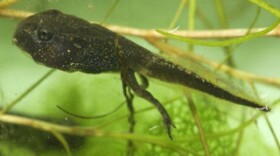Discover nature this week and take the sting out of summer.
The perception that stinging insects are instinctively aggressive at any time and place is wrong, and blinds us to the role they play in nature's balance. Many stinging insect species are essential for the pollination of fruits, vegetables and flowers. Others are important predators of pest insects that eat both wild and cultivated plants.
However, a sting from a bee, wasp, or hornet is never a pleasant experience. Though Missouri has hundreds of species of wasps and bees it helps to realize only a few of them can deliver painful stings and many wasps and bees are too small to hurt a person. According to the Missouri Department of Conservation, a good rule of thumb is the larger the bee or wasp, the more painful the sting. Also, solitary bees or wasps are not as much of a threat as those that nest in large groups.
Bees typically sting only in self defense. The honey bee’s stinger is barbed and remains in the skin, which is why a bee dies after a sting.
Yellow jackets are probably the most aggressive wasp in Missouri, and can sting repeatedly, according to the Conservation Department. The bald-faced hornet is actually a wasp.
Taking a few precautions and using common sense when outdoors can reduce the risk of being stung. Be watchful for nests. Always wear shoes when outdoors and wear light colored clothing. Avoid wearing perfumes or scented hair sprays or lotions when outdoors. If a bee or wasp is near you, move slowly away from it; if one lands on you gently brush or coax it off. Never swat at a wasp or bee and certainly do not allow children to throw rocks at paper wasp or hornet nests.




